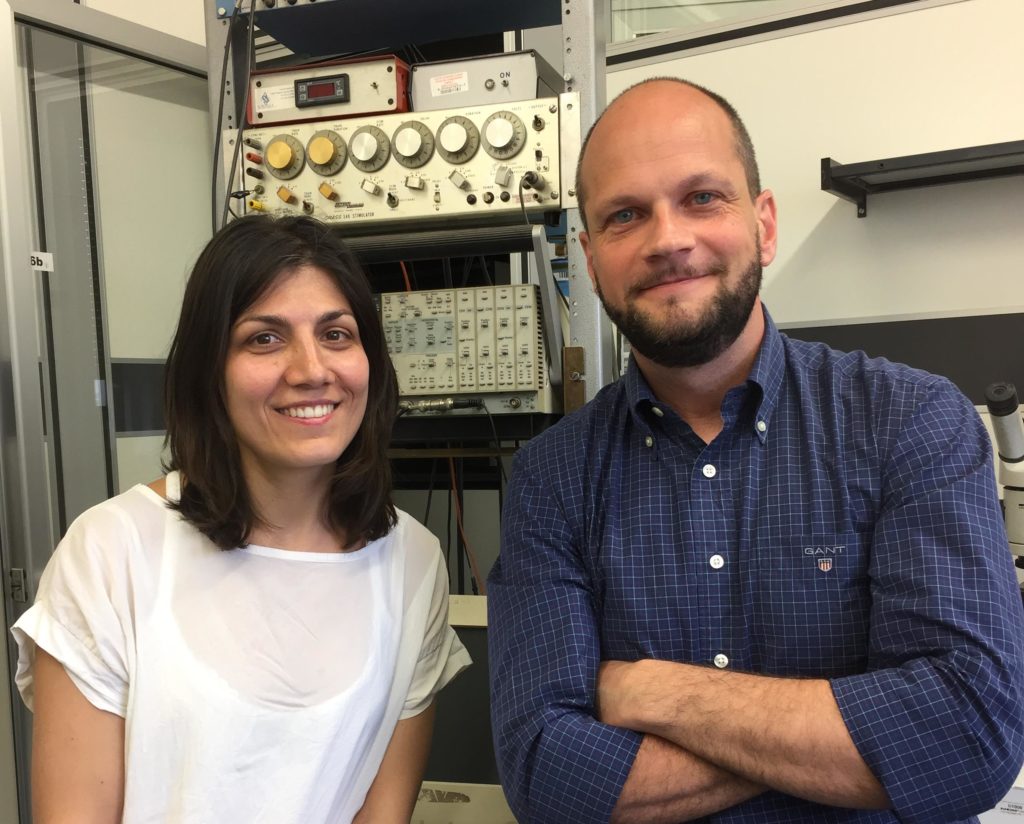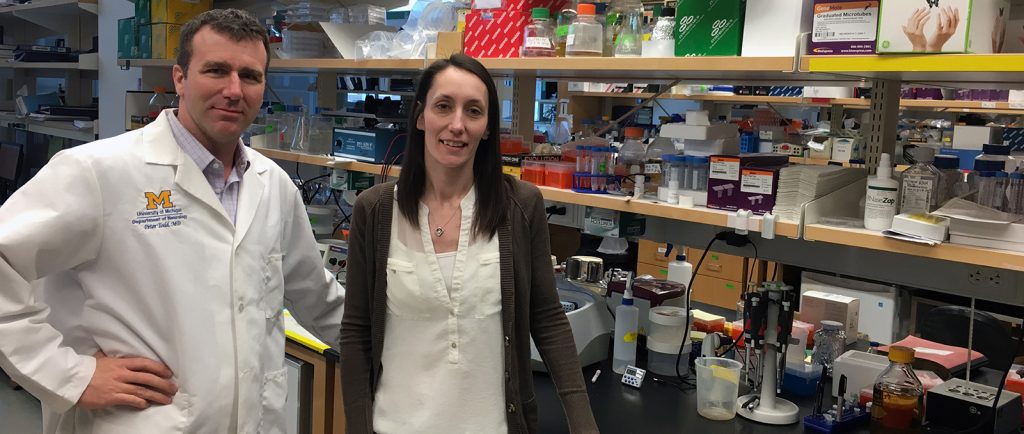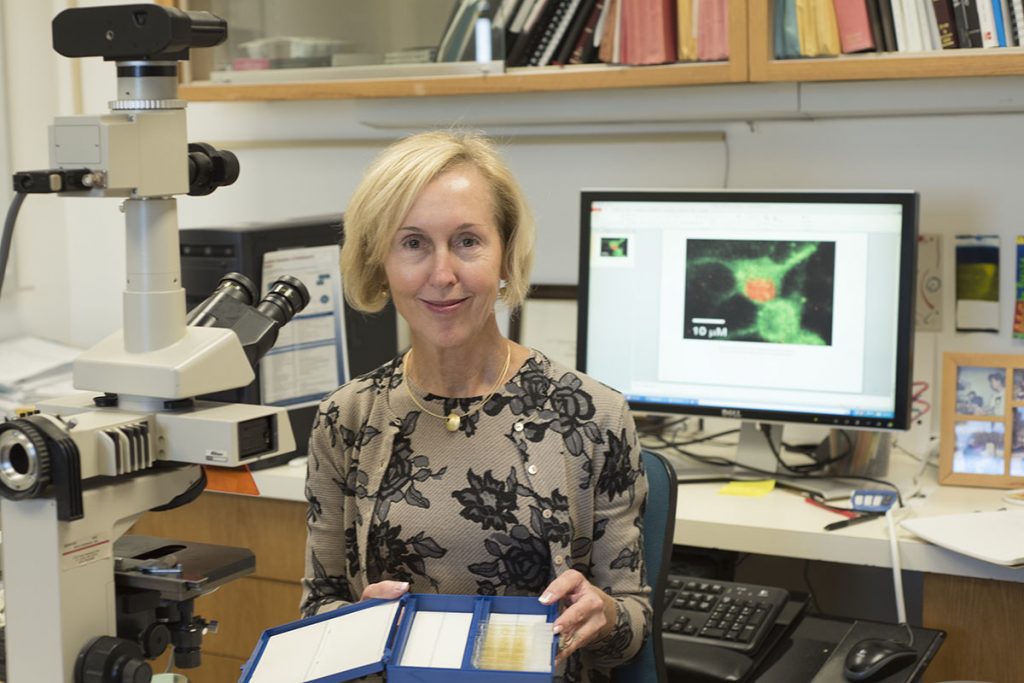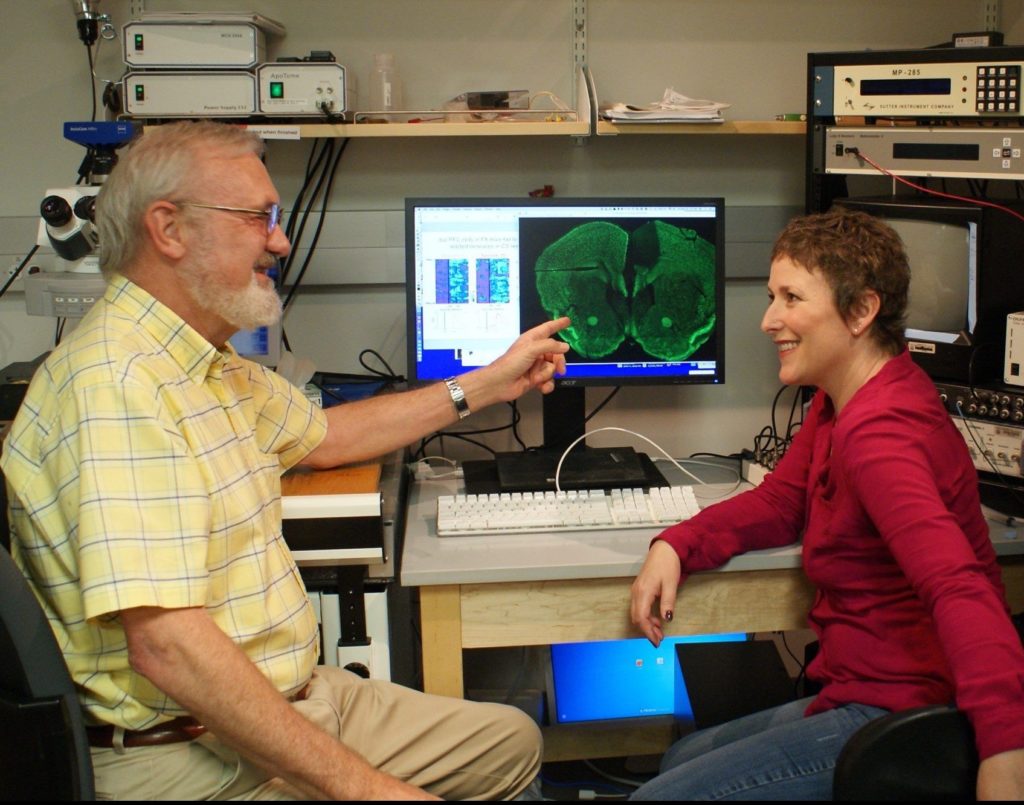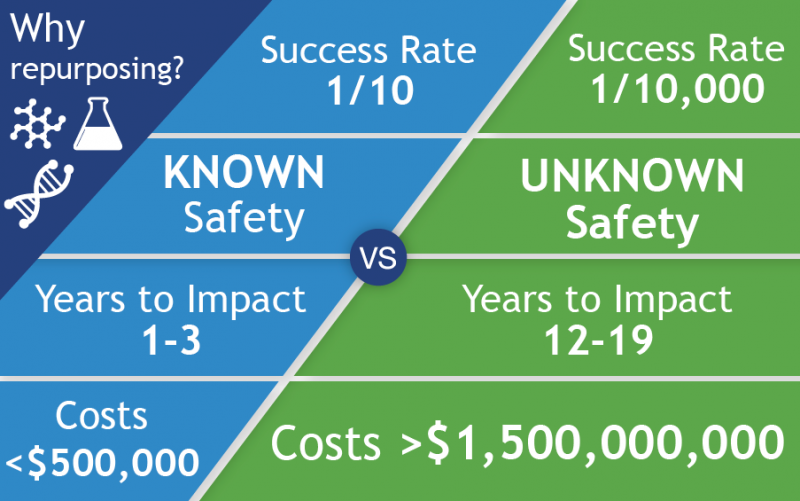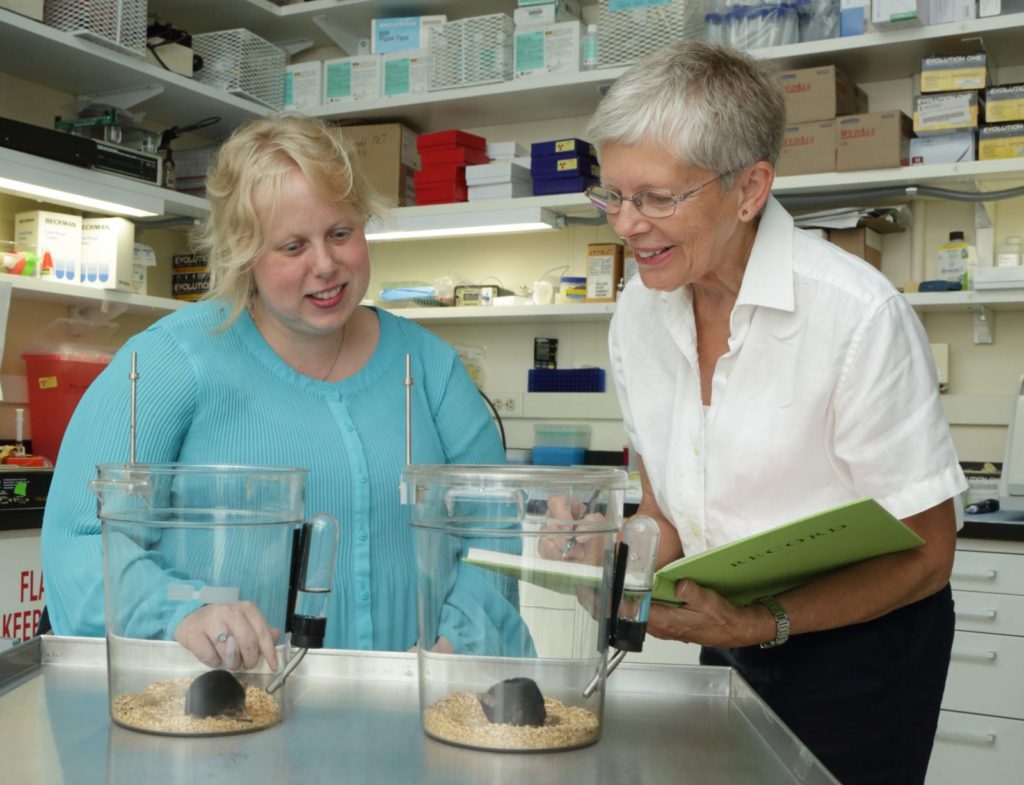Coffee, Tea, and Chocolate: Adenosine Receptors in Fragile X
Could “caffeine-like” drugs help Fragile X? FRAXA funded research to test adenosine blockers, which may boost thinking and improve symptoms in Fragile X mice.
Contacting Your Member of Congress to Advocate for Fragile X Research
A quick guide to contacting Congress for Fragile X advocacy—includes tips, recommendations, and how to look up your senators and representatives.
Mega Green Tea Extract to Treat Fragile X?
Green tea is thought to have many benefits, particularly in cognitive function. In 2012-14, FRAXA Research Foundation funded a clinical trial to assess the effects of EGCG (green tea extract) on cognitive function in adults with FXS. Drs. Rafael de la Torre and Mara Dierssen Sotos, principal researchers in Barcelona, Spain, reported memory, attention, and mental flexibility improvements.
How Promising is CRISPR for Fragile X?
Peter Todd, MD, PhD, Assistant Professor in the Department of Neurology in the University of Michigan Medical School, was awarded a FRAXA Research Grant for gene reactivation with the use of CRISPR. In this interview he tells us about CRISPR in Fragile X research, how realistic is it that it could turn the Fragile X gene back on, and if it can really cure Fragile X.
Tetra Discovery Partners Initiates Phase 2 Trial of BPN14770 in Fragile X Syndrome
This 2-Period Crossover Study of BPN14770 is accepting adults males with Fragile X syndrome at Rush University Medical Center in Chicago. Principal Investigator of the study is Elizabeth Berry-Kravis, MD, PhD.
A selective inhibitor of the phosphodiesterase type-4D (PDE4D), BPN14770 has shown the ability to improve the quality of connections between neurons and to improve multiple behavioral outcomes in the Fragile X mouse model.
Aripiprazole as a Treatment for Fragile X Syndrome
Many medications are used to help people with Fragile X cope. But few clinical trials have been done on these drugs. Years ago FRAXA funded Dr. Craig Erickson to run a trial of aripiprazole (aka Abilify). FRAXA guest writer Hannah Miles recently caught up with Dr. Erickson to learn the results of the trial.
Study Examines Behavioral Traits of Fragile X Patients Without Autism
Patients with Fragile X syndrome who don’t meet the cut-off for a diagnosis of autism show a decrease in impulsivity and repetitive questioning over time, when compared with patients who do, a new study shows.
Takeaways from Fragile X Advocacy Day
At my first Fragile X Advocacy Day, I met with Congress and families, advocating together for research and hope.
Impact of the Fragile X Community
Because of you, FRAXA invests $1M+ each year in Fragile X research and helped launch $35M more in studies leading to clinical trials.
Fragile X Clinical Trial of AZD7325 in Adults
FRAXA funded a trial of AZD7325, a drug that boosts GABA(A), in adults with Fragile X. Led by Dr. Craig Erickson, it also tested innovative biomarkers for future trials.
CRISPR Reactivation of the Fragile X Gene
“We are trying to target the first event that goes wrong in Fragile X syndrome”, says Todd, “One reason our previous attempts to develop treatments for Fragile X syndrome have failed is that they’ve tried to target the downstream effects of losing the Fragile X protein. The protein does many things… bypassing all the functions that it normally takes care of has proven difficult from a pharmacologic perspective.”
Autophagy is a Novel Therapeutic Target of Impaired Cognition in Fragile X Syndrome
FRAXA’s $90K grant enabled Dr. Zukin to link impaired autophagy to Fragile X. Boosting autophagy restored synaptic proteins and reversed cognitive deficits in mice.
Targeted Transcriptional Reactivation of FMR1 in Fragile X Syndrome Stem Cells
FRAXA funded Dr. Peter Todd to use CRISPR to reactivate FMR1. Published results confirmed restored gene expression, a big step toward disease-modifying therapy.
Defining Subcellular Specificity of Metabotropic Glutamate Receptor (mGluR5) Antagonists
This study showed that selectively targeting mGluR5 receptors in specific neuronal compartments can correct distinct Fragile X synaptic defects, improving precision therapy.
Investigating Gene Reactivation to Treat Fragile X Syndrome
With a $180,000 grant from FRAXA Research Foundation, Dr. Jeannie Lee and her team at Harvard are working to reactivate the gene that is silenced in Fragile X syndrome.
Mechanisms of Tolerance to Chronic mGluR5 Inhibition
FRAXA supported research showing mGluR5 antagonist tolerance develops quickly in Fragile X models, guiding new strategies to prevent or overcome it.
Prefrontal Cortex Network (PFC) Dynamics in Fragile X Syndrome
The team has shown that Fragile X mice have major prefrontal cortex deficits in Fragile X mice. Finding ways to overcome this could reveal new intervention strategies.
Development of a High-Content Synapse Assay to Screen Therapeutics for Fragile X Syndrome
This work established a high-content synaptic imaging platform for Fragile X cells to test many candidate drugs for their ability to repair synapse structure and function.
Biomarker Discovery and Validation for Fragile X Syndrome
This grant supported discovery of protein-based biomarkers for Fragile X to create objective outcome measures that translate from mouse studies to human trials.
Repurposing Available Drugs to Treat Fragile X Syndrome – FRAXA Initiatives
FRAXA Research Foundation was founded in 1994 to fund biomedical research aimed at finding a cure for Fragile X syndrome and, ultimately, autism. We prioritize translational research with the potential to lead to improved treatments for Fragile X in the near term. Our early efforts involved supporting a great deal of basic neuroscience to understand the cause of Fragile X. By 1996, these efforts had already begun to yield results useful for drug repurposing. To date, FRAXA has funded well over $25 million in research, with over $3 million of that for repurposing existing drugs for Fragile X.
PIKE as a Central Regulator of Synaptic Dysfunction in Fragile X Syndrome
With $255,000 from FRAXA Research Foundation, Dr. Suzanne Zukin at Albert Einstein College of Medicine studied signalling pathways in Fragile X syndrome.
NIH Investigator Carolyn Beebe Smith, PhD, Looks to Improve Sleep in Fragile X Syndrome
Our sons with Fragile X Syndrome typically go to bed early and rise early. Sometimes they jump on us while we are sleeping at 3 a.m., excited to start their day. For heaven’s sake, why? The answer may come from Carolyn Beebe Smith, PhD, senior investigator, Section on Neuroadaptation and Protein Metabolism, National Institute of Mental Health, National Institutes of Health, Bethesda, Maryland. She is studying why children, in particularly boys, with FXS have problems sleeping.

